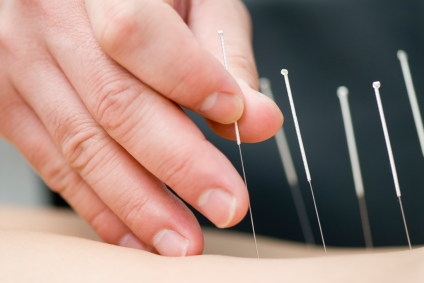
Within the practice of TCM, there are many different modalities, and while many people often equate Acupuncture with Traditional Chinese Medicine, this is not necessarily the case. Acupuncture is a modality within the scope of TCM, but it is really just a component, and therefore part of a much larger picture. Other therapies that might be employed include moxibustion, herbal medicine, diet and lifestyle changes, and exercise (generally qi gong , or tai chi ).
Essentially, the TCM view is that we live in a universe in which everything is interconnected. As a result, what happens to one part of the body will ultimately affect every other part of the body. For this reason, the goal of our TCM practitioners is to re-establish balance and harmony within your system!
FREQUENTLY ASKED QUESTIONS
How does a TCM practitioner determine what’s wrong with me?
Your practitioner will employ several diagnostic tools to determine what is out of balance. This begins with questioning the patient about their various signs and symptoms, previous medical history, and course of illness. Next is a physical inspection of one’s face, body, posture, and in particular the tongue and its coating. The practitioner will also palpate various body areas, and the pulse at both wrists. Finally, the sound of one’s voice, breathing, and any smells or odors will also form part of the picture. By using the combined information obtained from these diagnostic methods, the practitioner will be able to determine what is out of balance, and the appropriate treatment method(s) will be selected.
Can TCM help me?
It is estimated that 25% of the world’s population makes use of TCM therapies. In fact, traditional Chinese medicine and modern Western medicine are the two dominant medical systems in the world today. Chinese medicine is a complete medical system, with methods and treatments that can address the full range of disease: acute and chronic, traumatic, infectious, and internally generated. However, there are some cases where Chinese medicine may not be powerful enough. Conditions that are particularly far advanced or virulent, or cases of emergency or acute trauma may not be ideal for TCM. On the other hand, Chinese medicine is an ideal choice at the early stages of any disease, or for cases where modern medicine has no effective treatment.
How long will it take?
There are many factors that determine how long a person will require treatment. Generally speaking, newer or more recent problems will require fewer treatments, and chronic or older conditions will take more time. Acute injuries or conditions of acute pain will be treated with greater frequency (2-3 times per week), and chronic conditions are treated less frequently.
Do I have to keep coming back for treatment?
This is a common question, and the answer is not simple. It is recommended that you return for periodic treatments, much the same as you see your dentist. This allows your practitioner to help you maintain a desired state of health. This notion of preventative medical care is one that we at North Shore Wellness Centre consider extremely important, and we try to educate all of our patients as to the importance of regular care.
Is Chinese medicine safe?
In British Columbia, practitioners are governed the College of Traditional Chinese Medicine Practitioners and Acupuncturists of British Columbia ( www.ctcma.bc.ca ). This is the regulating body of TCM in the province, and it is your assurance of competent, quality practitioners. When practiced correctly, TCM will have no side effects, and is extremely safe. The North Shore Wellness Centre uses individually packaged, sterile, disposable needles so there is virtually no chance of infection.
Is acupuncture painful?
An acupuncture needle is extremely thin, and their insertion is virtually painless. Some needling sites will produce very little sensation, and you may not even know the needles are in place. Other sites may produce a sensation of tingling, electricity, heat, cold, heaviness, or an achy sensation. There may also be a sensation of qi moving up or down the channels. The vast majority of people find acupuncture to be extremely relaxing, and many will even fall asleep during treatment.
Safety
The practice of traditional Chinese medicine is extremely safe when performed by a competent, registered practitioner. There are currently four professional designations that pertain to the practice of Chinese medicine in BC, these are:
• R.Ac (Registered Acupuncturist)
• R.TCM.H (Registered TCM Herbalist)
• R.TCM.P (Registered TCM Practitioner)
• Dr. TCM
For more information, see the College website at www.ctcma.bc.ca.
Education
Educational requirements vary according to the professional designation of the practitioner. For example, the Dr.TCM requires five years of school at a TCM college, and two years of undergrad studies for a total of seven years.
Licensing
All the information regarding licensing of practitioners is available on the College website at www.ctcma.bc.ca
College of Traditional Chinese Medicine Practitioners and Acupuncturist of BC


 Facebook
Facebook